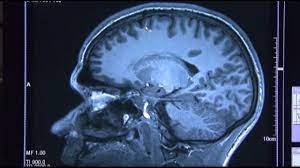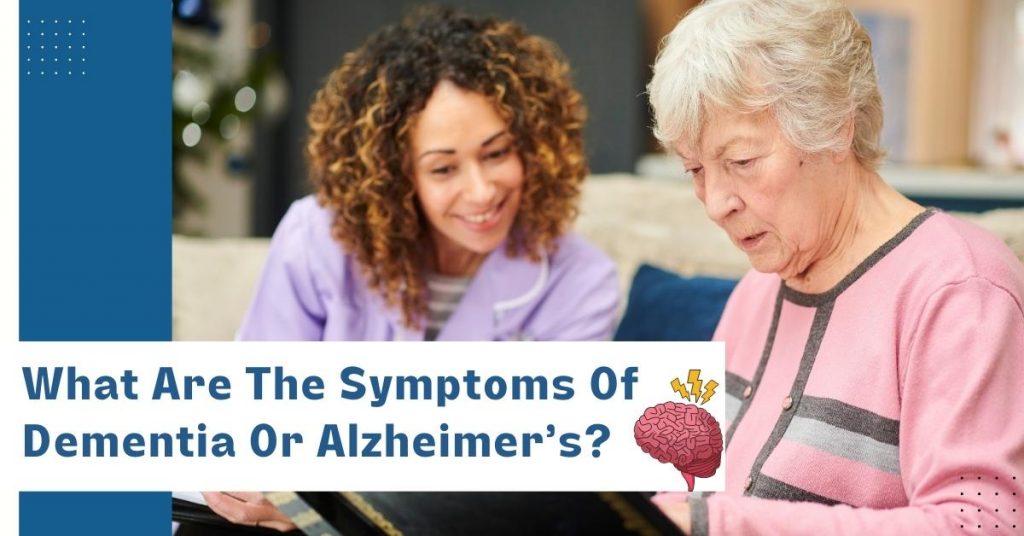
What Is Dementia?
Dementia is a whole term, not a single disease. It refers to a wide range of certain medical states, including Alzheimer’s. Dementia is caused by abnormal brain changes and disorders. Dementia leads to a decline in cognitive abilities, thinking skills, and independent function. It also affects feelings, behavior, and relationships with people.
What Is Alzheimer’s Disease?
Alzheimer’s is a mental disorder that deteriorates thinking skills and memory, which eventually leads to difficulty while doing the simplest tasks. In many people, the sign of Alzheimer’s appears later, which is why it’s hard to detect. Also, Alzheimer’s is a complex mental state that is not likely to treat by the intervention of a single drug.
10 Symptoms Of Dementia Or Alzheimer’s
To help you early diagnose the state of Alzheimer’s and Dementia, here we have compiled a list of early signs and symptoms of these mental conditions. Go through these symptoms and help yourself or your close one to diagnose the issue and tackle them accordingly.
Memory Loss
The very basic symptom of Alzheimer’s is memory loss. Alzheimer’s patients often forget important dates, events and information. They rely on memory aids such as reminder notes or digital devices. Moreover, their family members used to handle their work and decisions in that period.
Difficulty In Planning Or Solving Problems
People living with Dementia face difficulty while planning and following any plan. Also, they face challenges working with numbers and keeping records of something usual and important. Apart from that, people suffering from Dementia find difficulty in concentration and take a much longer time to do basic things.
Confusion With Place Or Time
The Alzheimer’s patient can lose records of seasons, dates, and the passage of time. They might face issues in understanding as well.
Trouble Understanding Spatial Relationships & Visual Images
Several people face vision issues as a sign of Alzheimer’s. This lead to trouble reading and difficulty with balance. Alzheimer’s patients also do have issues determining color or contrast and judging distance. This issue causes difficulty in driving.
Issues In Writing Or Speaking
People suffering from Alzheimer’s face difficulty among groups of people, and they get uncomfortable while joining any conversation. Else, they may stop in the mid of the conversation and repeat themselves. Alzheimer’s patients struggle with vocabulary and use the wrong names of basic words.
Decreased Or Poor Judgment
Making judgments and decisions is tough for people facing Alzheimer’s and Dementia. For instance, they may use wrong judgment in financial matters. Besides, they pay less focus on their grooming and personal hygiene.
Also Read: How To Provide Emotional Support To Patients And Their Families?
Mood & Personality Changes
Patients with Alzheimer’s and Dementia do face frequent mood and personality changes. They can become suspicious, confused, fearful, depressed, or anxious. They get upset at times and feel very lonely while going out with friends and family.
Habit Of Misplacing Things
A person with Alzheimer’s and Dementia often misplaces common daily articles like keys or wallets. They tend to put things in the wrong places. For instance, a watch in the freezer or a comb in a kitchen bowl.
Difficulty Doing Familiar Tasks
People going through Dementia face trouble in completing regular and familiar tasks such as playing games or preparing a meal.
How Can You Prevent Alzheimer’s & Dementia?
Based on experts and their studies, Alzheimer’s and Dementia are chronic conditions that develop due to multiple factors. These factors include age, environment, genetics, lifestyle, and coexisting health conditions. But few preventive measures can help reduce the risk of Alzheimer’s & Dementia. Let’s know about them.
Physical Exercise & Diet
Regular exercise and a healthy diet are among the finest and most beneficial strategies to reduce the risk or prevent Alzheimer’s and vascular Dementia. Exercise, yoga, and other physical activities aid brain cells by increasing blood levels and oxygen flow in one’s brain. Your diet should include fruits, veggies, and whole grains. Also, the diet plan beneficial for Alzheimer’s & Dementia includes the DASH and Mediterranean diets.
Social Relations And Cognitive Activity
Plenty of studies show that maintaining social connections and being mentally active reduces the risk of Alzheimer’s and cognitive decline. Although the experts are unsure about the reason behind this association, the studies are true. There might be a chance because of direct mechanisms by which mental and social stimulation boosts the relation between nerve cells.
How To Treat Dementia & Alzheimer’s Disease?
The treatment of Alzheimer’s is done with the proper medications and therapies. In the later stages of Alzheimer’s, patients take memantine which treats moderate to severe confusion. Moreover, one can take CST (cognitive stimulation therapy) to improve brain function and mental skills.
If someone has Dementia, then it’s very important to be hopeful for both the patient and his family members. In Dementia, keeping your hopes high contributes a lot to a person’s health. Although Dementia cannot be permanently cured, a healthy lifestyle and proper medications can help you in this challenging journey. Getting routine checkups, joining support groups, and having a positive outlook also help a lot in such medical conditions. Besides, one can take cognitive stimulation therapy, reminiscence therapy, and reality orientation therapy.
The one very effective way to improve or treat Alzheimer’s and Dementia is to take clinical expert consultancy. By visiting a medical consultant, you can discuss your issue, can get advice and a caregiving plan. They listen to your issue and help you get prepared for the challenges you may face in the future. From bathing to dressing, they help you manage day-to-day needs. If you are seeking for a consultant to help you with Dementia Or Alzheimer’s, Alnicor Consulting is one of the most popular and reliable names you can count on.
If you or your close one are experiencing mentioned changes, don’t ignore them. Book your appointment with a doctor or a consultant without any further delay.

